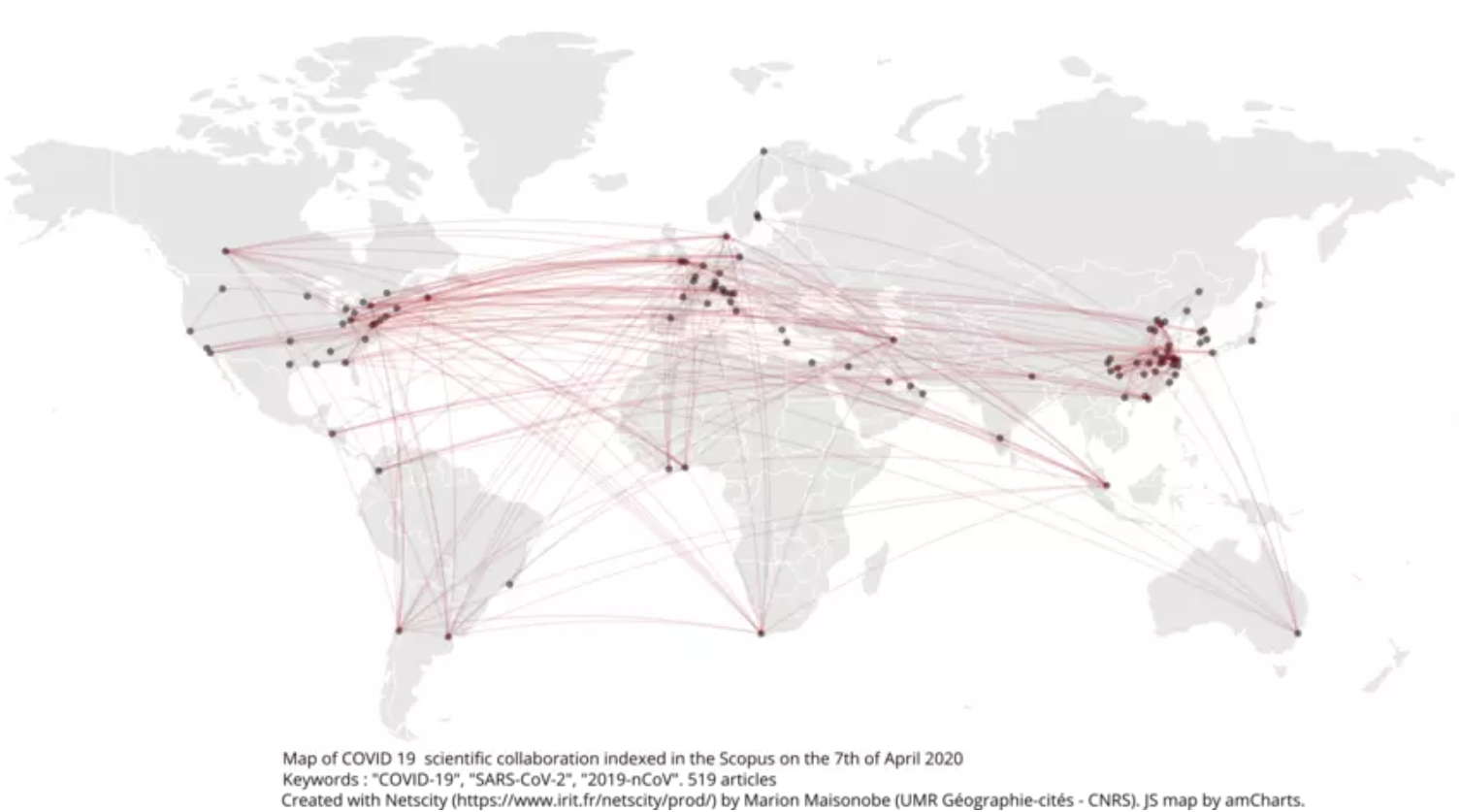
This blog has been co-authored by Miranda Marcus.
-
This blog post is intended to kick off our series on data access, use and sharing in response to the global climate crisis. We will be publishing more blog posts over time based on the work the ODI is doing for climate action, as well as opportunities, threats and other observations going on in the world of data, energy and climate.
We kicked off this focus at ODI Summit 2020 with a panel on ‘What role does data play in addressing the climate crisis?’ including Alyssa Gilbert, Director of Policy and Translation at the Grantham Institute for Climate Change and the Environment; Hugh Knowles, Co-CEO, Friends of the Earth; Jack Kelly, Co-founder, Open Climate Fix; and Ann Pettifor, Director, PRIME Economics and author of The Case for the Green New Deal.
NB: We use the terms ‘climate crisis’, ‘climate emergency’ and ‘climate action’ from the field of climate science and activism.
Global collaboration in a Covid-19 world
It goes without saying that Covid-19 has been a shock to just about every system on the planet. But as the world starts to respond to the consequences of the pandemic, and countries like the UK look to have a green recovery, an opportunity is presenting itself to build on the lessons from the Covid-19 response in how we use data and the need for global collaboration.
Alongside calls for green economic recovery packages, the emergence of Covid-19 demonstrated the potential for rapid innovation in the scientific community when barriers to sharing and collaboration are lowered. Never before have so many of the world’s researchers focused on a single topic, creating a global collaboration unlike any in history.
Rather than waiting for experimental results to be published in journals to gain academic credit, findings have been shared directly with peers, and the use of preprint servers, which publish findings prior to peer review, has skyrocketed. Researchers have identified and shared hundreds of viral genome sequences and more than 200 clinical trials have been launched, bringing together hospitals and laboratories around the globe. Journals are working at double speed to get papers peer-reviewed and published as quickly as possible.

This goes not just for understanding the virus and modelling the epidemiological impacts of different policy interventions, but also for innovating on-the-ground responses. For example, Massachusetts Institute of Technology worked on a low-cost ventilator, and its open-source design was taken up by a group of robotics engineers in India in a race to build ventilators to ease the country’s shortage.
Many scientists are openly welcoming the way the outbreak has already changed the way they communicate, and organisations like the World Economic Forum are calling for international collaborations in scientific research to become the norm and not the exception, stating that ‘COVID-19 has not only raised the expectations we have of science, it has also accentuated the fact that global challenges require global solutions’.
However, Covid-19 has also demonstrated the need for reliable data institutions – organisations devoted to using data to address societal issues – to mediate the firehose of information. Journals such as the Lancet and The New England Journal of Medicine (NEJM), which have been criticised for being gatekeepers to academic credit and blockers to open science, have adapted their role and started behaving more as data institutions: fielding the preprint data, enabling peer reviews and, where needed, retracting information based on poor quality data. In the controversial Surgisphere incident, both journals pulled several influential Covid-19 research papers after Surgisphere – the company which provided the dataset the papers were based on – refused to share the full dataset, as the journals could no longer vouch for the veracity of the findings.
From Covid to the climate
How can the culture of open data and open science being fostered through Covid-19 be adopted to address climate research? A more open and equitable data infrastructure could support the scientific research needed to understand the changing climate, make informed policy decisions to mitigate the risks, and enable innovations that will both remove carbon from our atmosphere and provide new, sustainable, products, services and supply chains.
One of the most important methods that the global science community is using to combat the climate crisis is the tracking of carbon emissions. Tracking carbon emissions involves collecting, using and sharing data related to current volumes and sources of CO2, and using the data to monitor the effect of policy interventions and other activity on levels of emissions over time.
Both the UK and Europe have prioritised efforts to reduce carbon emissions and get to a net-zero future. The UK’s Clean Growth Strategy and the European Green Deal both lay out the environmental and economic ambitions for these two polities, with the goal of aiming for climate neutrality by 2050. These efforts need a data infrastructure that allows for accurate carbon tracking and collaborative research, innovation, and policy implementation.
Looking strictly at carbon emissions, calculating the carbon footprint of various activities ranges wildly in difficulty. Direct emitters such as vehicles and livestock are simple enough to measure, but scope 3 emissions (the indirect emissions that occur in the value chain around their products and services, both upstream and downstream) are much more challenging to quantify. As we have noted in our work on tackling climate change challenges through data access, improving the way data is collected, used and shared for calculating scope 3 emissions could help companies to significantly lower their emissions throughout their supply chains.
In the EU, the Emissions Trading System (ETS) has been the leading instrument for measuring carbon emissions. It regulates around 45% of total greenhouse gas emissions in the EU, including energy-intensive industries such as the aviation sector, but there remains a significant amount of data to be collected from non-ETS sectors and companies.
Back in the UK, Streamlined Energy and Carbon Reporting (SECR) is a legal mandate requiring companies to report their carbon emissions. Emissions related to electricity, gas, and transport energy use are all under the scope of SECR, though coverage is limited to around 12,000 UK businesses.
Data access initiatives for climate action
A data access initiative is a programme of work with a clear social, environmental or economic challenge involving multiple stakeholders and a strong focus on collecting, using and sharing data. A data access initiative for carbon emissions should seek to encourage, support and equip more UK and EU companies to publish data about their emissions in a machine-readable format and under an open licence, so that anyone can access, use and share it.
Where this is difficult for smaller organisations, governments could take lessons from initiatives like OpenActive, that help smaller organisations with publishing data. An analog from the world of Covid could be from the Trades Union Congress (TUC), which has set up its Covid-Secure Check, an open collection of Covid-19 workplace risk assessments submitted by employers and including good and bad practices to improve working conditions during the pandemic. This initiative has been useful to trade unions and safety leads, as well as for journalists and government statisticians.
A second data access initiative should follow in the tradition of ‘open science’ where the methodologies and frameworks for calculating carbon emissions are openly published so that they can be scrutinised by the international committee and can help drive consensus on best practices to be replicated around the world. This has been a point of considerable focus during the Covid pandemic as predictive models were being used, shared, critiqued and improved upon in the feverish effort to understand the future impact of the novel coronavirus.
Likely these access initiatives will surface two major issues: that some of the data about climate impact contains personal or commercially sensitive data, and that multinational corporate structures are obscuring the real impact of carbon emissions from organisations. Both of these issues can be addressed with different types of data institutions.
Where personal and commercially sensitive data cannot be simply anonymised and openly published, an independent organisation could steward this data and either aid with anonymisation and publishing, or engage in selective, well-governed sharing to relevant stakeholder communities such as those in research and academia.
Where corporate structures are obscuring the extent of carbon impact, data held by existing data institutions like OpenCorporates and OpenOwnership – organisations that track and openly publish domestic and international corporate ownership – underpins the meaningful sharing of carbon emission data.
To achieve a just green recovery from Covid that allows humanity to achieve the UN Intergovernmental Panel on Climate Change (IPCC) climate goals of 1.5 °C will take a global herculean effort. This includes a change in culture, policy, economic models and technology. But part of that change also exists in creating a data infrastructure that is open, trustworthy and fit for purpose. Making critical climate data more accessible through data access initiatives and data institutions can help create the building blocks of the changes we need to make to save the planet.